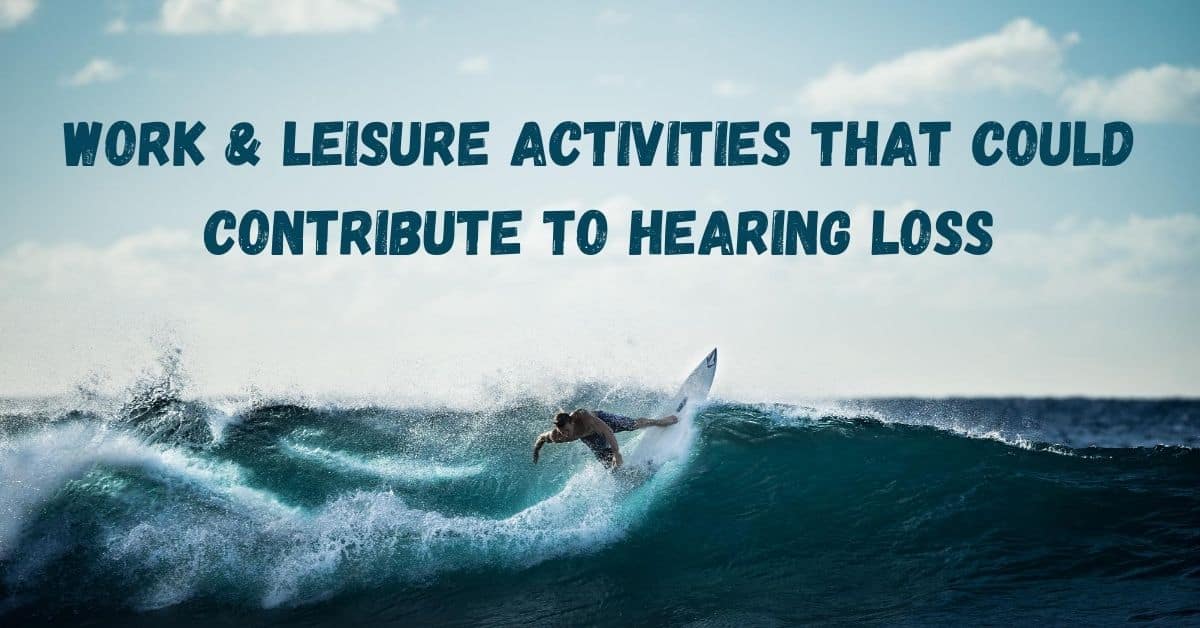There are a number of causes of hearing loss. Age related hearing loss is common among older adults. As your joints get a bit stiffer, or your eyesight changes, your ears also go through some changes, and you may have some hearing loss as you age. Among younger adults, noise induced hearing loss is the most common kind of hearing loss. This hearing loss can be caused by a number of work and leisure activities that damage your ears and your hearing.
What is Noise Induced Hearing Loss?
Noise induced hearing loss is a type of hearing loss that’s caused by overexposure to very loud noises. Sounds that can damage your hearing are any sounds over 85 decibels (dB). This is roughly the volume of heavy traffic, a noisy window air conditioner, or a noisy restaurant. When you’re exposed to sounds of 85 decibels, your ears may be fine for several hours, but the constant noise will start to damage your hearing.
Once sounds reach 100 dB, you’ll damage your hearing much faster. Sounds that are 100 dB include driving a motorcycle, going to the movie theatre, or riding a tractor. These sounds can damage your hearing in as little as 15 minutes! Very loud sounds, such as fireworks directly overhead, an airplane at close range, or a gunshot, can damage hearing almost immediately.
Work Activities that Could Contribute to Hearing Loss
Some work activities that cause hearing loss are very obvious. Construction workers often work on very loud job sites that can damage hearing. Factory workers and miners are also around very loud equipment for many hours every day. Farmers, ambulance drivers, and law enforcement officers also risk their hearing during their normal duties.
Other professionals with work activities that could contribute to hearing loss include musicians and performers. They’re exposed to very loud noise every day, both in the concert hall and in the recording studio. Athletes play games in stadiums packed with cheering fans, and their work could contribute to hearing loss. Even restaurant and bar staff can face hearing loss at work due to loud music and packed venues.
Leisure Activities that Could Contribute to Hearing Loss
There are a number of loud hobbies and leisure activities that can lead to hearing loss. For example, playing in a school or community band can damage hearing, since you spend several hours in a room full of loud instruments. Attending concerts or sports events could contribute to hearing loss, and these events are so loud you may leave the event with a ringing in your ears, or feeling like sounds are muffled.
Other leisure activities that affect your hearing include driving a motorcycle, an ATV, a motorboat, or any other recreational vehicle that can be very loud. Mowing your lawn or using a chainsaw or other power tools can also damage your hearing.
Another leisure activity that leads to hearing loss is listening to music with earbuds or headphones. When you listen to music at unsafe volumes, or turn up the volume to block out background noise, the sounds entering your ears can be extremely loud. When you turn the volume up all the way on your personal listening device, sounds can be over 100 dB!
Protecting Your Hearing
We want you to enjoy your leisure activities and work safely without worrying about your hearing. You can still do all the things you love when you protect your hearing. If you’re attending a concert or sports event, wear a pair of foam or wax earplugs while inside. These are light, inexpensive earplugs, and you can buy a bag and share them with your friends. Make sure you also wear hearing protection when you mow the lawn or use power tools.
If you ride a motorbike every day, work in a noisy bar, or work on a noisy job site, invest in earmuffs or digital hearing protection to protect your ears. Earmuffs will create a strong seal around your ears and protect your hearing. Digital hearing protection is custom molded to your ear. They sit inside your ear and block harmful sounds before they reach your ears. They’re hardly noticeable in your ears, and they’re comfortable to wear for many hours. Make sure you protect your hearing during loud work and leisure activities.


